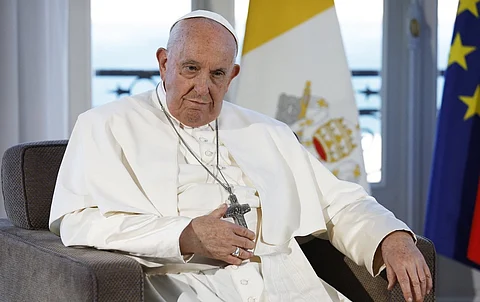

Pope Francis on Thursday, December 14, urged world leaders to adopt a global treaty on the use of artificial intelligence to ensure it is used in an ethical way.
The pope's request came in his message for the World Day of Peace, which is celebrated by the Catholic Church each year on Jan. 1. Each year the pope sends the document to heads of state and other global leaders along with his New Year's wishes. In addition, the pope typically gives an autographed copy of the document to high-profile Vatican visitors.
"Any number of urgent questions need to be asked. What will be the consequences, in the medium and long term, of these new digital technologies?" Francis asked in his six-page document on artificial intelligence. "And what impact will they have on individual lives and on societies, on international stability and world peace?"
While welcoming advances in science and technology that have reduced human suffering, Pope Francis warned some discoveries have the effect of "placing in human hands a vast array of options, including some that may pose a risk to our survival and endanger our common home".
He emphasized on the dangers of using AI, including in disinformation and interference in elections, and also to make decisions - from social security payments to where to target weapons - for which responsibility becomes blurred.
"In the quest for absolute freedom, we risk falling into the spiral of a 'technological dictatorship'," he wrote.
He warned that those who design algorithms and digital technologies cannot be assumed to want to act "ethically and responsibly".
Instead, he called for "binding international treaty" to regulate the development and use of AI, with the goal of preventing harm and sharing good practice.
"Technological developments that do not lead to an improvement in the quality of life of all humanity, but on the contrary aggravate inequalities and conflicts, can never count as true progress," he wrote.
Concerns about AI have increased since the chatbot ChatGPT, a mass-market gateway to generative AI, exploded onto the scene in late 2022.
